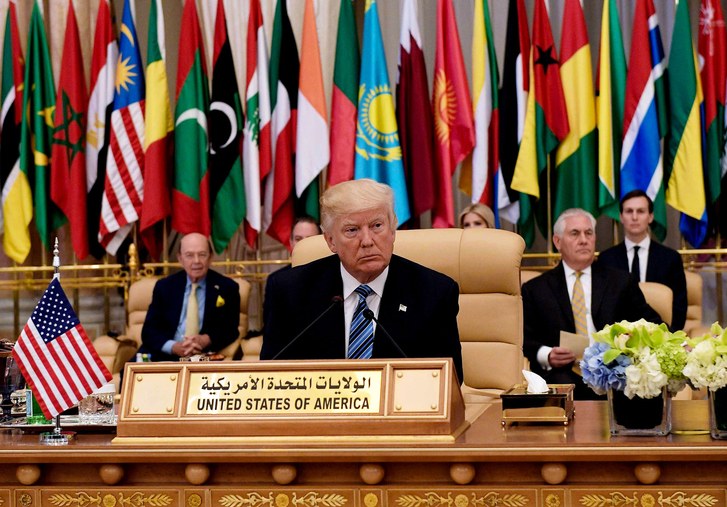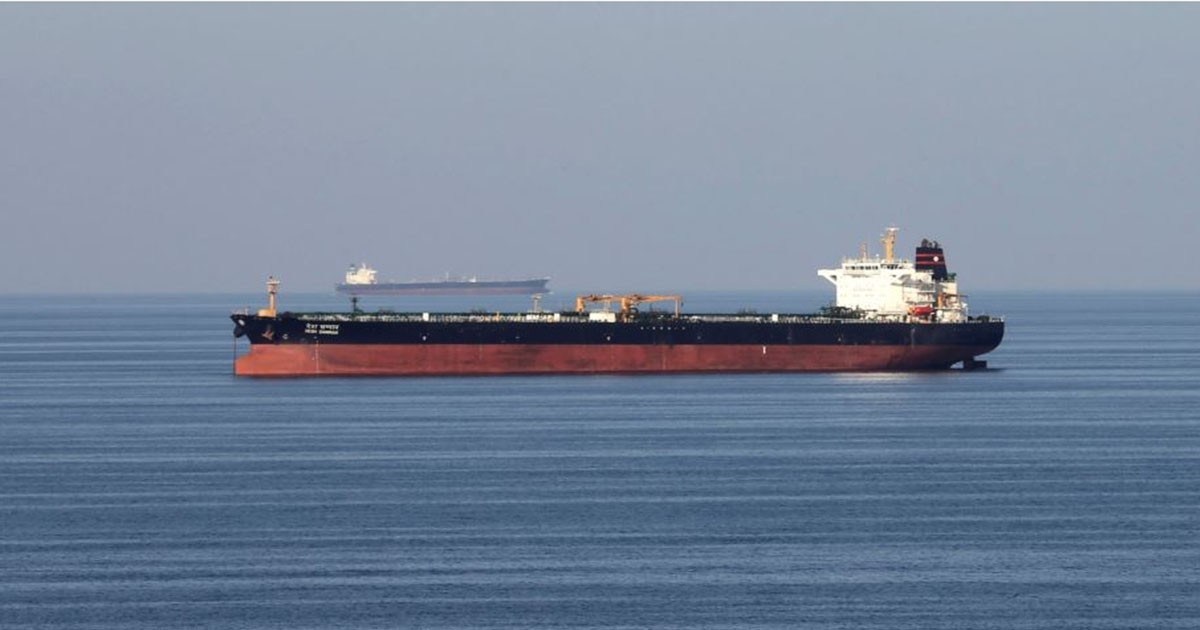Manzar Qureshi |
Amid pomp and grandeur, President Donald Trump delivered his much awaited “speech on Islam” in the Kingdom of Saudi Arabia. After praising the warm hospitality, he went on to discuss the need for cooperation against the evils of extremism and terrorism. Besides lending support to the Saudi-led military alliance, Trump categorically pinpointed the enemy and the battle lines. Yes, he castigated Iran by all means and ascertained the direction in which the General Raheel-led military alliance would look.
KSA will be buying weapons worth 380 billion in 10 years with rights to manufacture some of them. This is tantamount to 38 billion a year.
“But no discussion of stamping out this threat would be complete without mentioning the government that gives terrorists all three — safe harbor, financial backing, and the social standing needed for recruitment. It is a regime that is responsible for so much instability in the region. I am speaking, of course, of Iran,” he said.
“From Lebanon to Iraq to Yemen, Iran funds, arms, and trains terrorists, militias, and other extremist groups that spread destruction and chaos across the region. For decades, Iran has fueled the fires of sectarian conflict and terror,” he added.
Read more: Trump’s speech in Riyadh, in fact, proves that the US needs Iran
He termed Iran’s support of Assad in Syria as the most tragic of all the acts that Iran has committed and called upon a concerted effort to isolate the regime.
“Until the Iranian regime is willing to be a partner for peace, all nations of conscience must work together to isolate Iran, deny it funding for terrorism, and pray for the day when the Iranian people have the just and righteous government they deserve.”
– Donald Trump
Let us look at the implications of this “all vs Iran” military alliance especially after Trump’s enunciations on the Saudi-Iranian tensions.
Are we heading for an intra-region war?
Iranians are too smart to fall into a trap. Not only Pakistan but also the west can take a few lessons from the so-called Iranian clergies or Mullahs. No matter what the world has thrown at them since 1979, they come out undefeated, if not victorious.
Maybe through maneuvering, nudging, and a bit of growling, they managed to elect a reformist and an anti-war president, Hassan Rouhani. He is a Ph.D. doctor in Constitutional Law from Glasgow University with his research being in flexibility in shariah law. There cannot be a person better suited than him to steer Iran away from a collision course.
On the other hand, USA was more interested in selling arms and KSA was eager to buy them. They both didn’t have any other option hence the deal went the distance. KSA will be buying weapons worth 380 billion in 10 years with rights to manufacture some of them. This is tantamount to 38 billion a year.
After Iran and Hezbollah started showing progress in Syria, especially Aleppo, and open threats from Iranian revolutionary guards, KSA started panicking and started pushing harder to create a multinational security arrangement of 39 countries.
Here it is important to fathom that mayhem in the Middle East was started by Iranian hardliners when they took over Iraq and started getting disproportionately harder on the Sunni population. KSA had to intervene due to constant pleas by the Sunnis of Iraq. Initially, it was diplomatic pressure but it graduated into arms support and training, which resulted in the formation of the now potent ISIS.
To counter Iraq, the Kingdom started to stir up Syria with the help of black waters, currently operating with a different name. When Syria became a stalemate, Iran created unrest in Yemen and Bahrain. KSA sent troops in Bahrain and managed to stop Shia majority to take over.
Read more: US-Iran ties: Has the US kicked the hornet’s nest?
Bahrain was mostly controlled by Pakistanis in Bahrain’s security agencies, to include the police and the army. In reaction, Iran supported India to arm-twist Pakistan by supporting gangsters like Uzair Baloch to create unrest. Now when Syria and Yemen are in tatters, the Kingdom has managed to reverse Islamic brotherhood revolution which supported Khilafat and was close to Iran. But things changed when Iran sent over 50,000 troops in Syria and Iraq.
After Iran and Hezbollah started showing progress in Syria, especially Aleppo, and open threats from Iranian revolutionary guards which created special brigades of foreign fighters including a big number from Pakistan, KSA started panicking and started pushing harder to create a multinational security arrangement of 39 countries.
Rumor has it that Pakistan will contribute 34,000 troops to the Middle Eastern Conflict. Minus Pakistani troops, KSA will not be having any potent military.
Iran cannot roll back Syria or Iraq so will there be a give and take or a full confrontation? The next few months will tell. Using diplomatic skills, Iran may even turn the tables on KSA. Historically whenever Iran had a reformist president, Iranian hardliners become active and stirred up trouble.
Rumor has it that Pakistan will contribute 34,000 troops to the Middle Eastern Conflict. Minus Pakistani troops, KSA will not be having any potent military. With the US support, they can barely slogger it out with Iran but at a cost of total annihilation of gulf oil industry. Even if Pakistan manages to send this army, an invasion of Iran is out of the question. So what lies ahead?
Read more: Saudi Arabia & Iran: A potential nuclear race in the making?
After taking unparalleled insult, which Pakistan had no option but to take it on the chin, our delegation came back humiliated and happy as if they got away cheap and that it could have been worse. One thing is for certain: tough times ahead.
Manzar Qureshi is a senior analyst on Wars and Middle Eastern Conflicts with Voice of America. The views expressed in this article are the author’s own and do not necessarily reflect Global Village Space’s editorial policy.














